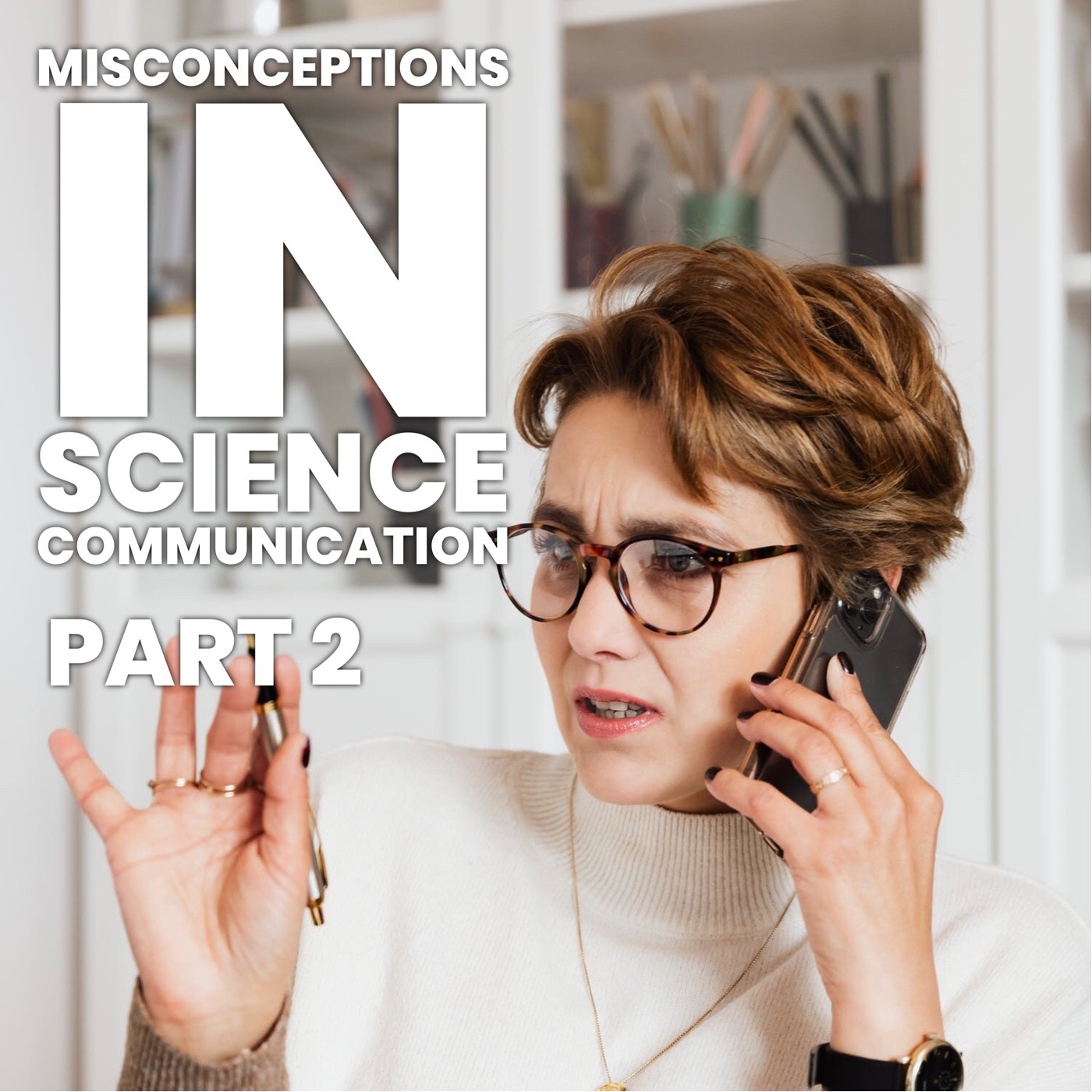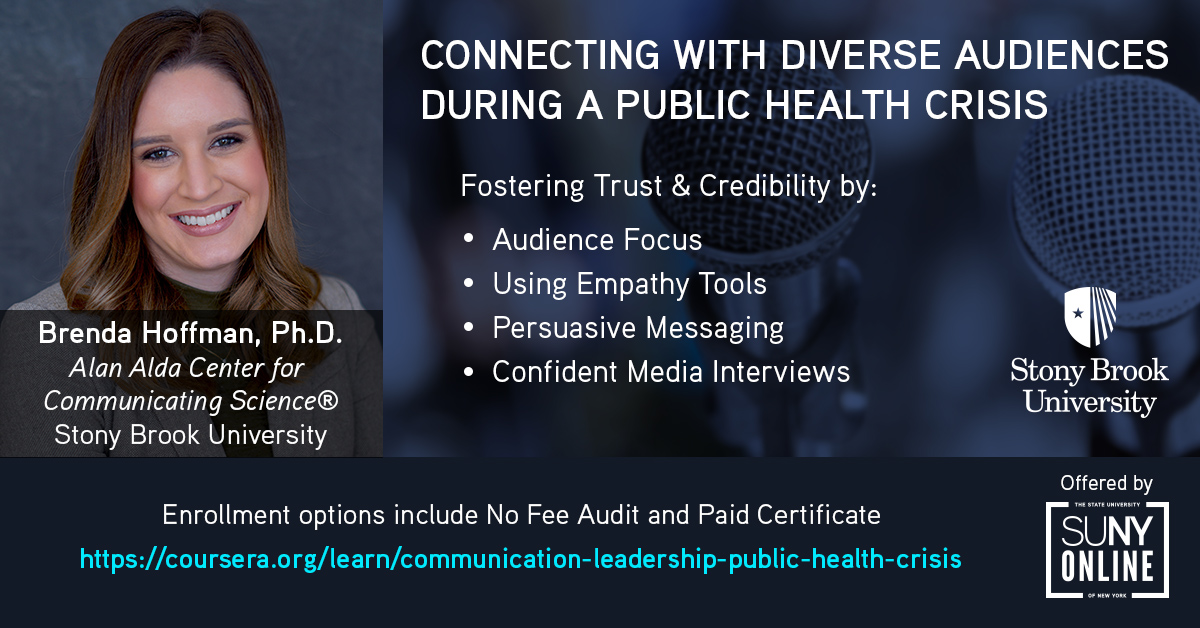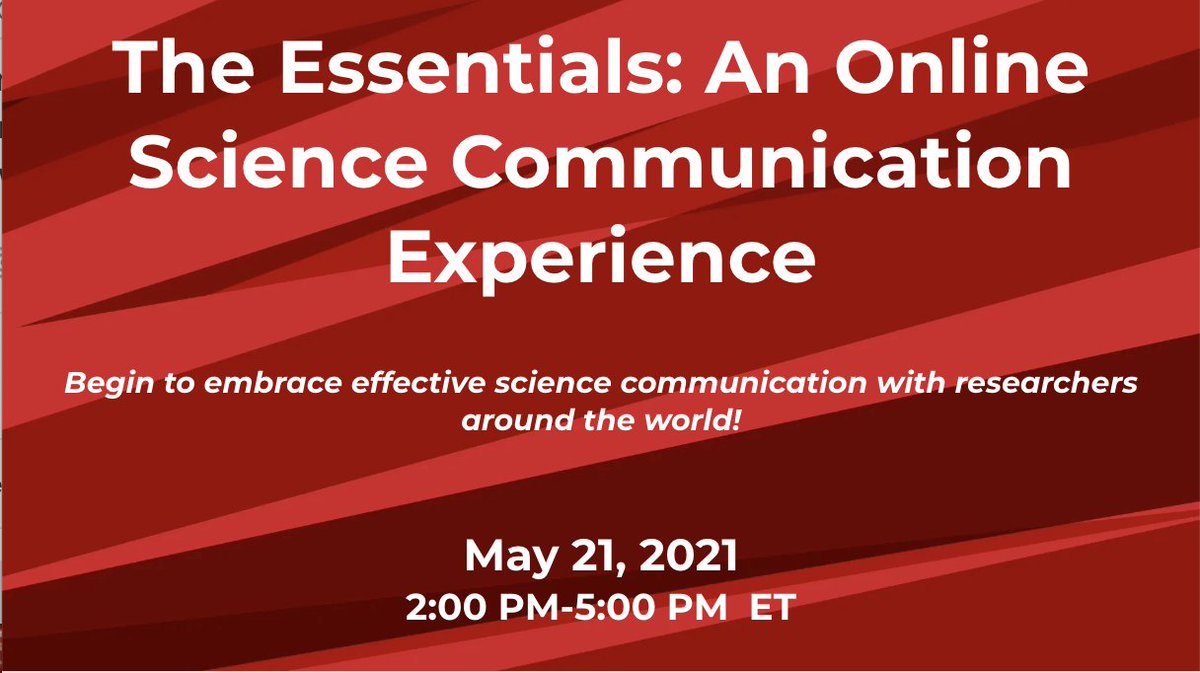Science communication (scicomm) is an emerging field, and therefore still susceptible to misconceptions, including a lack of understanding of the value of targeted messages, relying too heavily on facts and data, and believing that information alone can change opinions.
Today, we’re taking a look at several more false impressions from a new perspective: academia. We’ll get to the public's misconceptions in Part 3, so check back soon for that.
Did you miss the first Misconceptions article? Catch up here. We’ll wait. :D
The Academic Perspective: Scicomm Misconceptions
Scicomm means telling the public about science. There’s no real research backing it up, nor do we need any.
Science communication nestles in the intersection of science and communication studies. Like any academic discipline, it requires thorough research to validate its theories and identify best practices. There’s an ever-growing mound of empirical research that explores the best ways to share scientific concepts with audiences.
We all know that discussions of science can be polarizing - just ask Anthony Fauci. Because these conversations can be so emotional, we need to keep doing research and figuring out better ways to share accurate information with different people, across various backgrounds and systems of belief.
If you’re talking about science, it’s because you don’t have what it takes to actually DO science.
Tell that to Raven the Science Maven, or Bill Nye. People who don’t work in communication fields often think it’s simple - if we all speak the same language, communication automatically works. Yet the ability to speak clearly and vividly about complex concepts is critical to communicating science and scientific information effectively. It’s important for sharing science with the public, fostering interdisciplinary collaborations, securing funding for research, and more, and a quick Twitter or Instagram search reveals the field contains a rich mix of academic researchers and scientists in industry, among others.
Scicomm is an afterthought.
Dr. Sophie Milbourne, science communicator, digital content creator and stem cell biologist, says, “I guess there is the whole misconception around doing science communication as an alternative science career and that I am somehow a failed scientist if I opt for that career path. From my experience there is a huge difference in doing science communication for an organization and working within an organization, compared to doing scicomm as a PhD student, postdoc or more senior researcher. I don’t think all researchers are aware of the variety of things that scicomm can include and how that can benefit their careers by working with their comms counterparts.”
"I don’t think all researchers are aware of the variety of things that scicomm can include and how that can benefit their careers by working with their comms counterparts."
If you have time for scicomm, either you’re not a good scientist or you’re not productive enough.
Research takes time, and so does science communication. Each hinges on the success of the other: good science communication relies on quality research, but producing quality research without being able to communicate it to impact policy or health behavior is a lot like screaming into a void. Both are necessary, and if you have good time management skills, you can do both.
And if you’re still worried it can’t be done, consider this: better tech means that we can get interesting and useful results faster. At the same time, new communication tools - like social media - make it easier to share information with different people. It’s possible (and fun!) to share your research progress in real time, like these examples by The Cell Scientist or Research Diaries.
Science communication is a waste of time.
When you’re on track for a big breakthrough or chasing the next research grant, scicomm can feel like a distraction. But it can be a worthwhile supplement to your academic career. Pierre Olivier, marine biologist and science communication on social media specialist, was pleasantly surprised by how having a social media presence added to his work as a scientist. “Turned out I could grow my network and get opportunities by having an online presence,” he says. “Plus, you need to do it for most research grants.”
If that’s not motivation to join the world of scicomm, what is?
Science communicators don’t know anything about science.
Many scientists trade the lab bench for careers in industry or scicomm, where their keen analytical skills and attention to detail are sorely needed. In fact, new data from the NSF shows that the share of doctoral graduates entering industry or business sectors has increased by 10% over the last decade, while the number of those entering academia has dropped by 9%.
Science communicators come in a variety of flavors - some are PhDs with decades of research, others are science communication professionals, many of whom have science degrees as well. Scicomm is a diverse field with room for individuals across disciplines - and if you thought otherwise, now you know.
Wrapping it All Up
This is by no means an exhaustive list - more misconceptions about scicomm are undoubtedly still on the prowl. Which ones have you encountered? Let us know in the comments so we can continue to break the stigma that surrounds scicomm as a viable career path.
Further Reading:
- Oxford Academic published a useful meta analysis of communication research and theory.
- The NSF conducted a Survey of Earned Doctorates, published in 2021.










